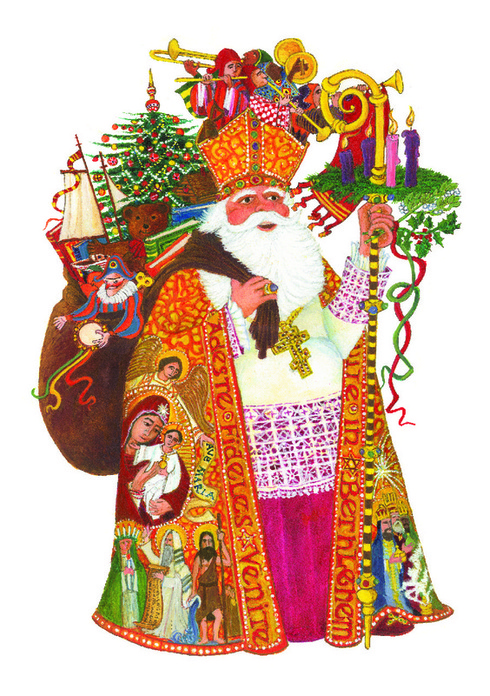Sunset on Thanksgiving
Dear old and new friends,
Once upon a time Thanksgiving was to celebrate the end of a good harvest and that barns and fruit cellars were full, insuring there would be enough to eat through the coming winter. Today’s Thanksgiving signals not the end but the beginning of the harvest season for merchants whose customers will spend roughly 70% of the American gross domestic product on Christmas gifts. These gift sales are critical since they determine merchants’ annual profit and that of our national economy. The nation’s treasury and merchants pray that, in spite of terrorist threat, the old adage “Shoppers keep shopping” will be true this year.
Yet we and our children already have all if not more than we need; so why buy more? And why does the celebration of Christmas or Hanukkah require giving gifts of things we don’t really need? Wait…did you hear it? That tiny voice saying, “Now Hays, don’t turn into a Scrooge and ruin our coming merry holidays.” I won’t! Yet I wish to help us explore why we do what we do and to offer some other options. We give gifts now because the ancient Romans found the winter weeks to be dark and dreary, so they celebrated Saturnalia on December 17th in honor of Saturn, the god of agriculture. During December’s cold, long and dark nights, this feast lifted their spirits by drinking and partying to excess. The Romans also exchanged token gifts and candles, and gifts of fruit and nuts.
The coming of Christianity didn’t convert the climate of dark cold weather, but in the 4th century Christians converted the sinful pagan feast of Saturnalia into the light festival of the birth of Jesus, and kept the old Roman custom of giving gifts. Giving gifts at Christmas time then is a beautiful nearly four thousand year and older tradition well worth keeping. Also, our spirits are lifted with a lights festival in winter’s darkness by illuminating our town and houses with endless strings of festive-colored lights. I have a friend who puts up “inside” his home strings of countless colored Christmas lights. He turns off all other lights and loves to sit meditatively in their glittering grandeur as if at the center of a galaxy. Now there’s a wonderful tradition; turn off the other lights in your home and spend quality time lost in childlike wonder in the magical presence of your lighted Christmas tree.
For a spouse or family member, instead going to a store for a gift, go around your home and find an old souvenir from some memorable vacation with them. Wrap it in Christmas paper and put it under the tree, and when the person opens it reminisce with them about the good times of that trip. Or recycle a cherished gift by symbolically wrapping it in holiday paper and giving it back (temporally) to the person(s) who had thoughtfully given it to you, telling them how all these years it has been such a keepsake. God help the merchants this year to survive, and even make a profit…but let us not add to the glut of our too-much-of-everything consumerism.
Finally, while shopping is like a sedative and consumerism the opiate of the masses, we often buy gifts we can’t afford for people who have too much already. It is estimated that one-third of our holiday buying still remains unpaid for two months after Christmas! We also buy stuff people don’t need or even like, as it is estimated 18% of holiday presents (worth a staggering $12 billion) are never worn or used.
John D. Rockefeller, Sr., the multimillionaire (in today’s dollars a multi-billionaire), learned he was to be gifted in the early 1900’s by his children with an electric car to enable him to easily ride around his vast estate. His response? “If it’s all the same to you, I’d rather have money."



 RSS Feed
RSS Feed